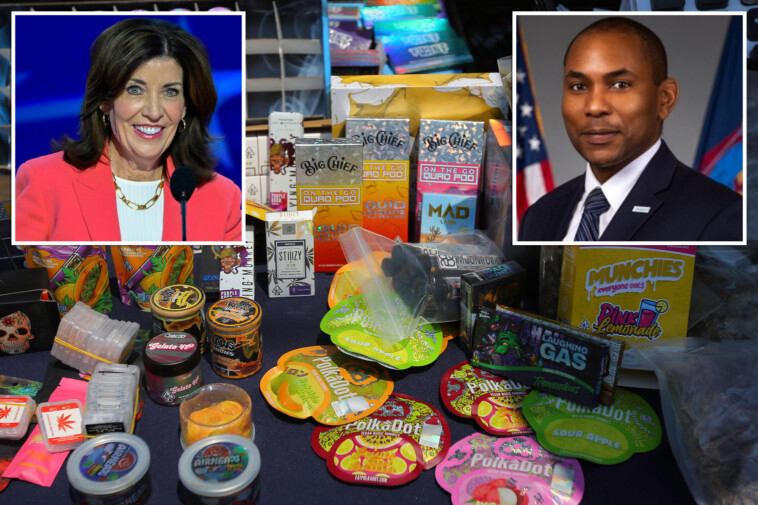That’s a lot of green!
Legal pot sales in New York are smokin’ hot and have now surpassed $500 million — fueled by a crackdown on illicit vendors, forcing buyers to patronize the real deal, officials say.
Sales topped $529 million by mid-this month — fewer than eight months after the city’s first legal shop opened in Manhattan and more than three years since the drug was legalized, according to John Kagia, director of policy for the state’s Office of Cannabis Management.
Gov. Kathy Hochul has projected the state will generate $1.25 billion in tax revenue from the fledgling industry within six years.
“The velocity is there,” Kagia told the Cannabis Advisory Board during a Tuesday meeting.
Kagia attributed the improved sales to Operation Padlock, a law-enforcement crackdown on shops illegally selling weed.
Nearly 40 percent of New York’s legal weed sales were generated since cops started padlocking illegal pot shops in mid-May.
Kagia said more than two dozen legally licensed pot retailers alone reported a 100 percent increase in sales growth since the crackdown began.
The properly licensed cannabis retailers told OCM that new customers are coming into their shops saying their old shop was closed by enforcement, Kagia said.
“It’s a really powerful testament to the outcomes we are able to see based on the state’s commitment to padlock these unlicensed dispensaries,” Kagia said.
But the high-profile crackdown is not without critics — including a judge whose ruling over its methods could jeopardize hundreds of the closures.
The judge recently found that the city has been skipping out on part of the legal process in shuttering the illicit sites.
Either way, Kagia told the Cannabis Advisory Board he expects New York’s legal marijuana sales to continue to increase through the second half of 2024.
Cannabis products are taxed by the state on the amount of THC — the chemical compound that gets people stoned — that they contain, according to the budget briefing book, which doesn’t specify that rate.
The state also collects a 9 percent excise tax, and local governments collect a 4 percent excise tax, in addition to state and local sales taxes.
Lawsuits and a rocky rollout with licensing delays initially kept much of the tax revenue from legal weed at bay.






